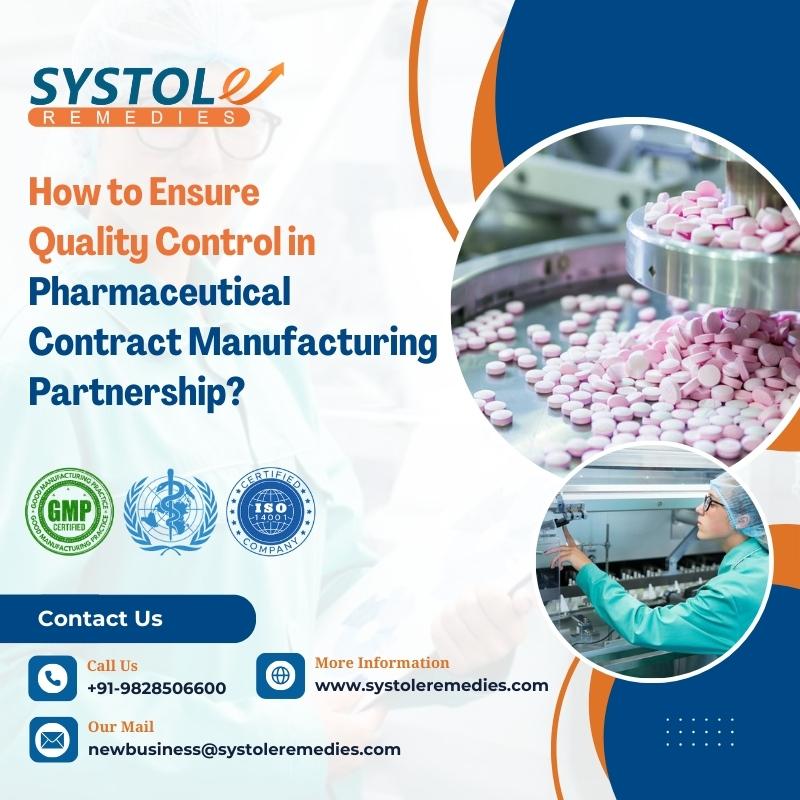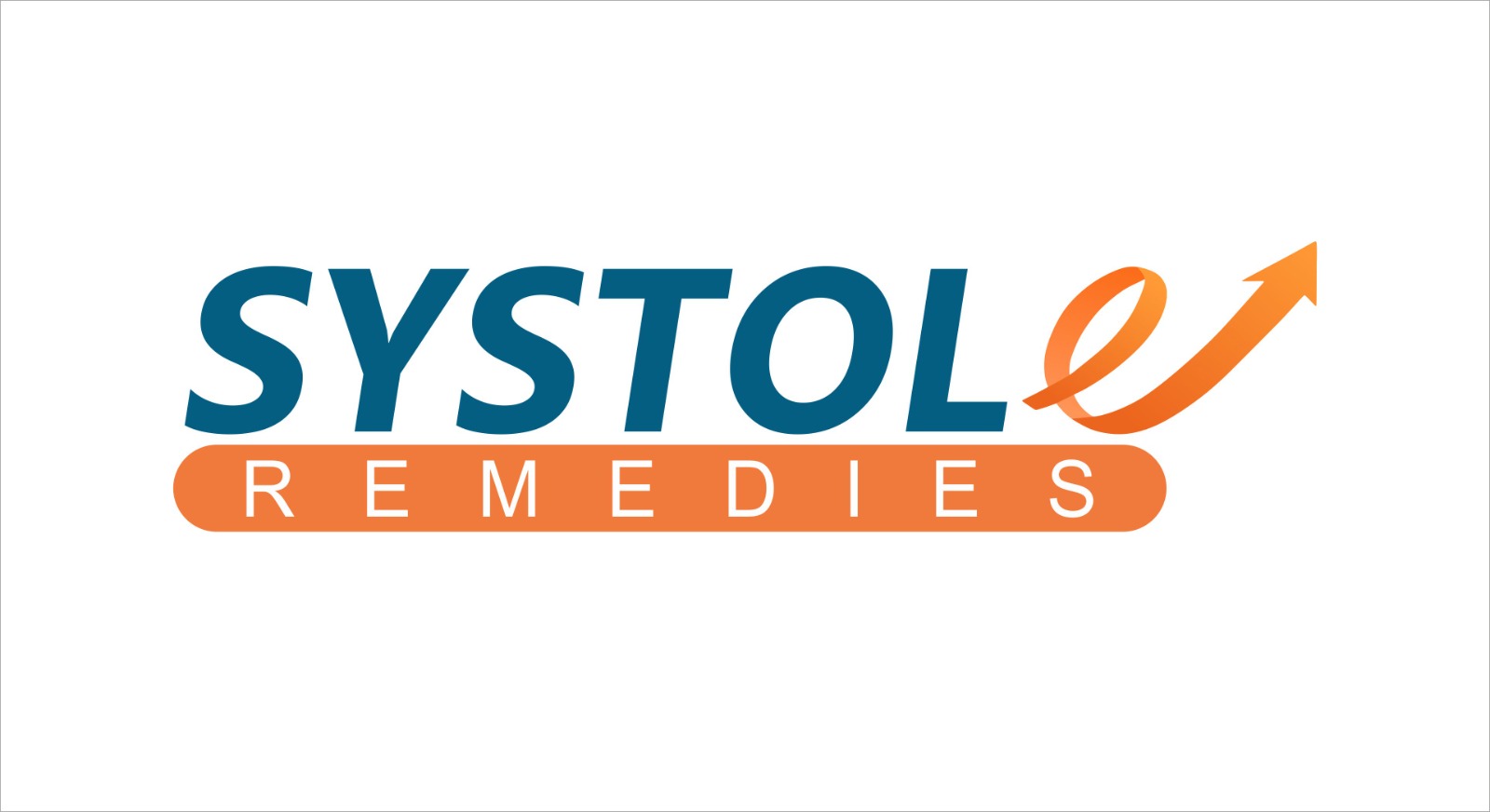-
Email Id
newbusiness@systoleremedies.com
-
Village Ogli Kala Amb
Dist Sirmaur Himachal-173030
-
Need Help?
How to Ensure Quality Control in Pharmaceutical Contract Manufacturing Partnership?
 10 January 2025 | By Admin
10 January 2025 | By Admin
How to Ensure Quality Control in Pharmaceutical Contract Manufacturing Partnership?
In the pharmaceutical business, quality matters above all things. When such a company wishes to collaborate with another company for producing products, this quality control can become a pressing concern. This report discusses how pharmaceutical contract manufacturing collaboration should be built to ensure effective quality control-what steps need to be considered and best practices adopted.
Why Quality Control in Third Party Pharma Manufacturing is Vital?
Pharma products have to adhere to very strict safety and efficacy standards set by regulatory bodies such as the FDA and WHO. A slight deviation in manufacturing processes can lead to serious consequences, including product recalls, loss of consumer trust, and legal implications. Therefore, ensuring robust quality control in Pharma Third Party Manufacturing partnerships is not just important but essential.
Key Steps to Maintain Quality Control of Third Party Manufacturing Partners
While working with a Third Party Pharma Manufacturing Company, it's important to create a foundation of maintaining high quality standards. The following are the best practices in ensuring consistent product quality.
1. Selecting a Reliable Third Party Medicine Manufacturer
Selection of a reliable Third Party Manufacturing Pharma Company is the initial step for the quality control assurance. Thorough due diligence in collaboration is a necessity. A record of quality production should be assured from the chosen manufacturing company. Validations like GMP and compliance to the industry requirements should be established. The history of successful management of production processes for the biggest brands in the pharma industry is typical of the most successful third-party manufacturers.
2. Set Quality Control Expectations
Once you settle on the third-party manufacturer, set proper quality control standards with them. It should reflect each step from sourcing raw material to final packing. The agreement must clearly identify parameters for acceptance regarding purity limits, potency levels, and product stability. These ensure that your expectations are correctly placed and reduced confusion in manufacturing.
3. Conduct Thorough Auditing and Inspection Processes
Even when the third party manufacturing company selected has a good name, you have to scrutinize the manufacturing facilities for routine audits. In third-party manufacture pharma companies, regular audits are mandatory since the facility being audited needs to maintain a good standard in order not to break off the deal which was signed based on an agreement. An auditing process of facilities involves examining records that contain details regarding batch production; cleaning conditions surrounding the facility manufacturing and testing instruments calibration status.
4. Supply Chain Monitoring for Quality
It is clear that raw materials quality is one factor affecting the final product quality in Third Party Pharma Manufacturing. Ensure your third party manufacture sources quality raw materials from reliable suppliers. Also, establish a way of ensuring such raw materials are of integrity by requiring them to either undertake third-party testing or have quality certificate from the supplier.
5. Testing and Validation
Testing the finished product is an important quality control measure. This includes validating the product for its potency, purity, and effectiveness. Pharmaceutical third party manufacturing should include a comprehensive testing phase before products reach the market. Regular testing ensures that products meet regulatory standards and are safe for consumer use.
6. Establish a Communication and Feedback Loop
Quality concerns should be addressed through effective communication with your third party manufacturing company. Establish a strong communication protocol that allows you to provide real-time feedback on any quality-related issues. The communication should be continuous so that both parties are informed of any challenges that arise. This proactive approach can help prevent small issues from escalating into major quality concerns.
7. Understand Regulatory Compliance Requirements
The pharma company and the Third Party Manufacturer share a responsibility in adhering to the industry regulations. Be sure to familiarize yourself with the specific regulatory requirements in your region and ensure that your third-party manufacturer adheres to them. The regulatory bodies, such as the FDA, impose strict guidelines on production. Regular audits of the manufacturer's compliance with these regulations can ensure that the products are not only safe but also legally compliant.
8. Quality Control in Packaging and Labeling
Even after the drug is manufactured, the packaging and labeling process plays a significant role in product quality. Incorrect labeling or faulty packaging can compromise the effectiveness and safety of the pharma product. Work with your third-party medicine manufacturer to ensure that packaging and labeling adhere to industry standards and regulations. This includes ensuring tamper-proof packaging and accurate labeling of product information.
What to Do If a Quality Issue Arises?
Still, there is a possibility that with all precautions, the quality issue will come up sometime. A contingency plan is always important. Recall procedures for faulty products, warning of consumers, and regulatory issues have to be made clear in such a plan. Moreover, a Third Party Manufacturing Company has to be liable for any quality defect during the process of production. It is also a must that a contract should clarify liability and compensation procedures in case of a quality issue.
Conclusion
Maintaining quality control within pharmaceutical contract manufacturing partnerships is highly important for assuring product safety and regulatory compliance. A partnership with a dependable third-party manufacturer, clear definition of quality expectations, regular auditing, and a strict testing and validation process helps companies maintain such high standards. A strong relationship based on mutual trust, understanding, and aligned goals will produce safe, effective, and quality pharmaceutical products in the hands of the brand as well as its customers.

